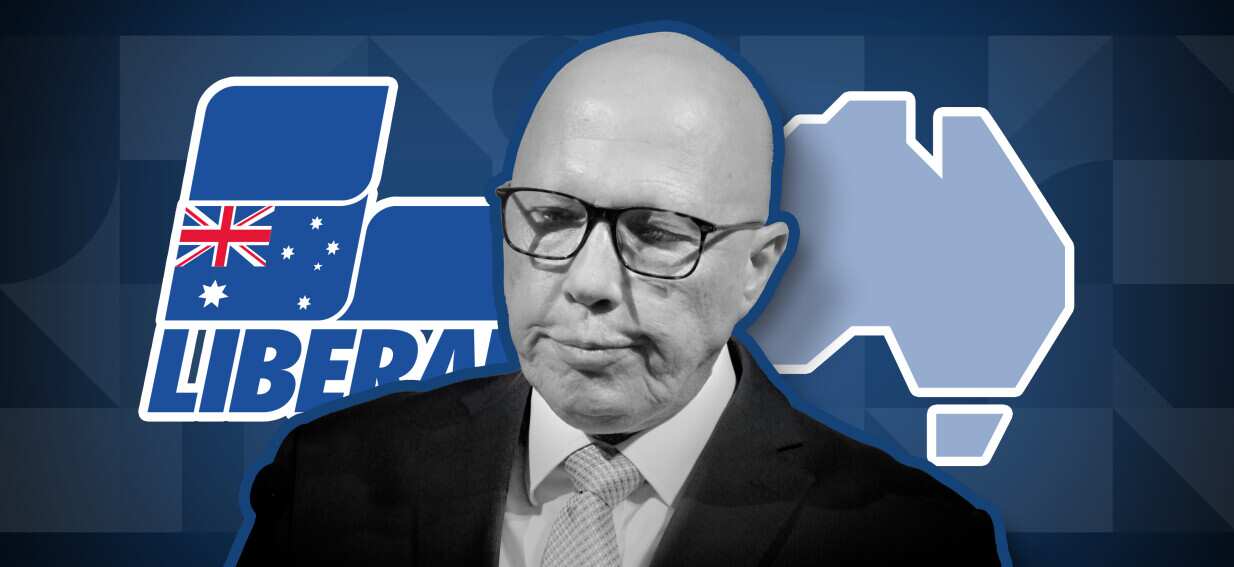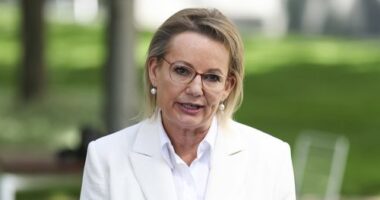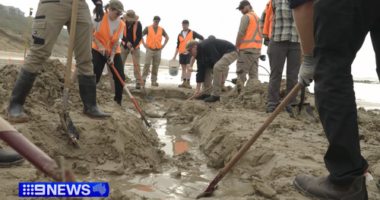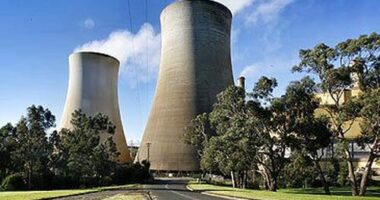Share this @internewscast.com

Key Points
- Liberal party moderates are calling for the party to be less conservative.
- The party suffered a historic election defeat.
- Former Liberal finance minister Simon Birmingham, a moderate faction member who recently retired from parliament, said his party needs a “dramatic” change.
In the wake of the Liberals’ stunning election loss, a slew of party moderates are calling for the party to shift towards the centre or be relegated to the political outskirts of modern Australia.
Former Liberal finance minister Simon Birmingham, a moderate faction member who recently retired from parliament, said his party needs a “dramatic” change to stay relevant with a new generations of voters.
“The broad church model of a party that successfully melds liberal and conservative thinking is clearly broken,” he wrote in a LinkedIn post on Sunday.
“The Liberal Party is not seen as remotely liberal and the brand of conservatism projected is clearly perceived as too harsh and out of touch,” he wrote.
“‘Our base is too narrow and so, occasionally, are our sympathies. You know what some people call us: ‘the nasty party’,” Birmingham wrote, quoting former British conservative leader Theresa May.
“The parallel is beyond striking.”
Liberal senator Dave Sharma, also of the moderate faction — often referred to as ‘small-L Liberals’ — said his party had failed to keep up with the values and priorities of contemporary Australia.
“And you see that reflected in the seats we’ve been evicted from: a lack of appeal in metropolitan areas …. and a lack of appeal to people who are younger than baby boomers,” he told ABC News.
“What do we believe in? What are our values and … how do we turn those into priorities and policies that resonate with today’s Australia?”
Conservative Liberals have naturally rejected the push from the moderate camp.
South Australian Liberal senator Alex Antic said the party needed to recruit more “true, blue, ‘big L’ Liberals” going forward.
“What we have to do is make sure that we make the Liberal Party great again. I said it, there we go — so we can make Australia great again,” he told Sky News, echoing Donald Trump’s famous slogan.
Similarly, mining billionaire and major Coalition donor Gina Rinehart called for Australia to embrace Trump-style governance, rejecting a commonly heard argument that a ‘Trump factor’ contributed to the conservatives’ defeat.
“No doubt the left media will now try to claim that the Liberal loss was because the Liberal Party followed Trump and became too right! The two simply don’t add up!” she wrote on her website.
However, Monash University political lecturer Blair Williams said younger Australian voters in particular did not welcome culture war debates and a Trumpian way of doing politics during the campaign — and many ended up voting for independent or minor party candidates.
Williams said the Liberal Party needed to assess whether its policies resonated with women, and why it did not attract more women to run for the party.
She said the Liberal party under founder Robert Menzies was the party of choice for women.
“The Labor party at the time was much more masculine and unionist,” Williams said.
“It’s interesting to see that downfall from the Liberals from a party for women to one that women increasingly shun, and has gone quite more to the right than Menzies was.
“They need to look at their own history.”
Williams said women who would have once run for the Liberal Party are instead running as teal independents — and most of them did successfully for a second time.
Meanwhile, political scientist Jill Sheppard from ANU said a shift towards the centre also comes with political risks.
“There’ll be plenty on the right who are saying: ‘Well, you know, we’re losing votes to One Nation too,” she told SBS News.
“They might bleed votes from moving to the centre. So moderation isn’t necessarily like an electoral panacea.
“You also need some differentiation from Labor. And if you can’t differentiate on competence, then what are you differentiating on?”
Simon Welsh, a director at polling firm RedBridge, said the Liberals’ 2025 election loss was “years in the making”.
He said many voters, especially younger voters, feel they have been left isolated “in an economic jungle occupied by some pretty powerful beasts”.
“If their [the Liberal party’s] liberalism doesn’t address that, they’ll go nowhere,” Welsh told SBS News.
“A big part of the political volatility broadly, not just the Liberal vote but the growing minor party, independent vote, are the consequences of liberalism.
“Privatisation that is seen to have eroded public services and driven up costs, free marketeering that voters pay for at the ColesWorth check outs. Unchecked corporate power not just economically, but also politically.”
Sheppard said that, while post-election analyses like to shape a narrative around Labor’s victory, the numbers paint a different picture.
“It’s a really weird election, because Labor hasn’t had a real swing towards it. It’s had a big swing in seats that mattered. But across the board, it’s lost votes in a bunch of seats.
“The primary votes for both parties are dreadful, and the Liberal Party’s is worse.”
For the latest from SBS News, and .
Visit the to access articles, podcasts and videos from SBS News, NITV and our teams covering more than 60 languages.













